★ ★ ★ ★ ★
"Always great service and great prices. Thank You Hartman Brothers."
— Keith Gay
(Facebook Review)
★ ★ ★ ★ ★
"They worked me in early. Inspected and found the problem quickly. Explain the issues thoroughly and did not attempt to see me parts and services I did not need. They got the heat going temporarily and hope to have needed parts in a couple days."
— Todd Hammond
(Google Review)
★ ★ ★ ★ ★
"Hartman was absolutly 100% thorough to ensure our HVAC issues were fixed after our new built home settled and 1st hard winter tested it. I love knowing Hartman is a phone call away to correctly fix and solve any heating and air condition needs."
— John Kravec
(Google Review)
★ ★ ★ ★ ★
"I've used Hartman Brothers for all my HVAC needs across multiple properties and they are always responsive and timely. Dalton was my technician and demonstrated a high degree of both professionalism and helpfulness. Vicky is their jack-of-all trades office and scheduling manager. She always does a phenomenal job and makes you feel valued as a customer in every interaction. You can't go wrong with this company. Strongly recommended!"
— Spencer Lulling
(Google Review)
★ ★ ★ ★ ★
"Our AC went out and they sent someone out within a few hours and the problem was fixed quickly. With our service membership we also got a discount so the repair price was reasonable. I was very impressed with how quickly and professionally they fixed the problem especially in the middle of summer when they must get a lot of AC calls. Will definitely continue to use Hartman Bros."
— Jane Christensen
(Google Review)
★ ★ ★ ★ ★
"Josh was very courteous and professional. He took the time to explain to me and show me what was going on inside the furnace. I felt really bad that we needed to call him out on a Sunday but with the inside of the furnace iced up our air just wasnt working and he got us up and running in no time"
— Dorothy Poling
(Google Review)
★ ★ ★ ★ ★
"Extremely pleased with their work! When I say I'm a picky customer, I really mean it (I'm a Training Manager for an HVAC manufacturer). These guys showed up precisely on time, were extremely courteous and professional, and did an outstanding job on my system. They were very careful moving the equipment to my mechanical room (not an easy task), did a very neat job on the install, and cleaned up so that everything was spotless when they left. I even gave them an opportunity to do a "shortcut" on my install, but they refused and said "that's not the way we do it." It was easy to tell that these techs took PRIDE in the work they were doing. I can't even begin to tell you how much I would recommend this small business from New Haven, IN to do any HVAC work. If you want a courteous, professional install at a reasonable price, call Hartman Bros!"
— Jay Hammond
(Google Review)
★ ★ ★ ★ ★
"As usual- excellent & friendly service. I would highly recommend this company."
— Tony Pohl
(Google Review)
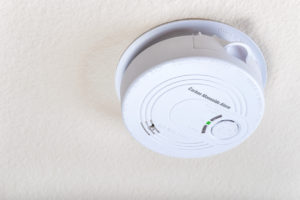 Major national safety organizations now agree that carbon monoxide detectors are every bit as essential to home safety as smoke detectors.
Major national safety organizations now agree that carbon monoxide detectors are every bit as essential to home safety as smoke detectors.

 Your
Your 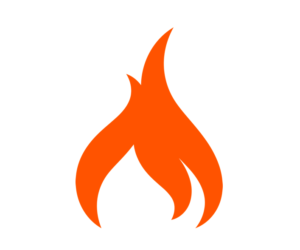 All gas furnaces use a heat exchanger to transfer the heat the gas creates. Normally, heat exchangers sit next to the furnace burners and heat up just like a pan on the stove. These parts, made from metal, absorb heat and the air that the blower sends over it warms. It enters the ductwork and heats your home.
All gas furnaces use a heat exchanger to transfer the heat the gas creates. Normally, heat exchangers sit next to the furnace burners and heat up just like a pan on the stove. These parts, made from metal, absorb heat and the air that the blower sends over it warms. It enters the ductwork and heats your home.
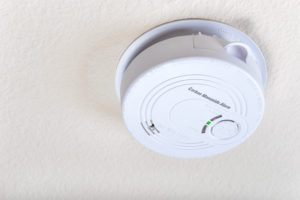 Now that another heating season is approaching and your home will soon be closed up against the cold, carbon monoxide (CO) exposure is a serious threat that you shouldn't ignore. Having your furnace inspected and tuned up by your
Now that another heating season is approaching and your home will soon be closed up against the cold, carbon monoxide (CO) exposure is a serious threat that you shouldn't ignore. Having your furnace inspected and tuned up by your 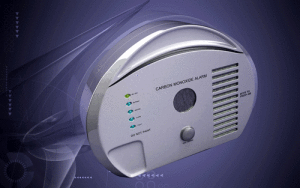 When you turn on your fuel-burning heating system for the fall, you have a reasonable expectation that it will operate safely. However, some unforeseen issues could occur that might make your gas or propane furnace a potentially deadly risk. To prevent this danger, you need a
When you turn on your fuel-burning heating system for the fall, you have a reasonable expectation that it will operate safely. However, some unforeseen issues could occur that might make your gas or propane furnace a potentially deadly risk. To prevent this danger, you need a 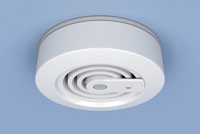 Carbon monoxide (CO)–a colorless, odorless, poisonous gas–is produced by the appliances you use in your home every day. Anything that burns fuel, such as a gas-fired furnace or water heater, produces carbon monoxide as a
Carbon monoxide (CO)–a colorless, odorless, poisonous gas–is produced by the appliances you use in your home every day. Anything that burns fuel, such as a gas-fired furnace or water heater, produces carbon monoxide as a 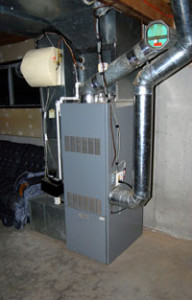 Installing a gas furnace is a reliably safe way to keep Fort Wayne's winter chill at bay. However, problems with your system can occur at any time. Knowing how to detect a gas leak can protect your family's health and safety.
Installing a gas furnace is a reliably safe way to keep Fort Wayne's winter chill at bay. However, problems with your system can occur at any time. Knowing how to detect a gas leak can protect your family's health and safety.
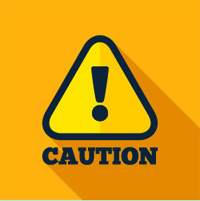 A lot can happen to your furnace or boiler while you're not looking. Regular maintenance including changing filters and cleaning your heating system can prevent a lot of issues, but problems can still occur with little warning.
A lot can happen to your furnace or boiler while you're not looking. Regular maintenance including changing filters and cleaning your heating system can prevent a lot of issues, but problems can still occur with little warning.
 Carbon monoxide is an odorless, tasteless, invisible gas that is produced in exhaust from vehicles, gas furnaces, stoves, wood fires and other appliances that work by combustion. Unfortunately, CO can be very hazardous to humans and animals, and, in fact, causes hundreds of accidental deaths in the United States every year. Since it can't be detected by sight or smell, how would you know if you'd been exposed to carbon monoxide?
Carbon monoxide is an odorless, tasteless, invisible gas that is produced in exhaust from vehicles, gas furnaces, stoves, wood fires and other appliances that work by combustion. Unfortunately, CO can be very hazardous to humans and animals, and, in fact, causes hundreds of accidental deaths in the United States every year. Since it can't be detected by sight or smell, how would you know if you'd been exposed to carbon monoxide?
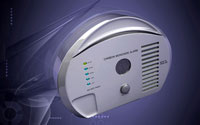 Keeping yourself safe from carbon monoxide exposure involves doing what you can to reduce and eliminate carbon monoxide (CO) from your home. In order to do this, you need to understand where carbon monoxide comes from, and how to properly deal with it in a way that stops any existing leaks, and prevents new ones from occurring.
Keeping yourself safe from carbon monoxide exposure involves doing what you can to reduce and eliminate carbon monoxide (CO) from your home. In order to do this, you need to understand where carbon monoxide comes from, and how to properly deal with it in a way that stops any existing leaks, and prevents new ones from occurring.
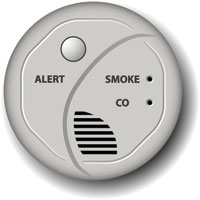 Carbon monoxide (CO) is a real threat lurking in your Fort Wayne area home. This colorless, odorless gas is hazardous and potentially lethal to humans and animals. It can be emitted from any combustion appliance in your home, including gas-powered water heaters and furnaces, if they're malfunctioning or not venting properly. It is very important to identify CO leaks quickly and address the situation immediately before it endangers your family.
Carbon monoxide (CO) is a real threat lurking in your Fort Wayne area home. This colorless, odorless gas is hazardous and potentially lethal to humans and animals. It can be emitted from any combustion appliance in your home, including gas-powered water heaters and furnaces, if they're malfunctioning or not venting properly. It is very important to identify CO leaks quickly and address the situation immediately before it endangers your family.  Homeowners have become increasingly aware of the hidden dangers associated with poor indoor air quality and are taking the necessary steps to ensure that their homes are filled with fresh, clean and healthy air. However, with all the chaos and disruption that comes along with building or remodeling your Indiana home, you may overlook airborne pollutants.
Homeowners have become increasingly aware of the hidden dangers associated with poor indoor air quality and are taking the necessary steps to ensure that their homes are filled with fresh, clean and healthy air. However, with all the chaos and disruption that comes along with building or remodeling your Indiana home, you may overlook airborne pollutants.
 Many people make a habit of warming their car up by turning on the ignition and letting the car run for a while inside their garage when the air turns chilly. Even if the overhead garage door is left open while the car is running,
Many people make a habit of warming their car up by turning on the ignition and letting the car run for a while inside their garage when the air turns chilly. Even if the overhead garage door is left open while the car is running, 